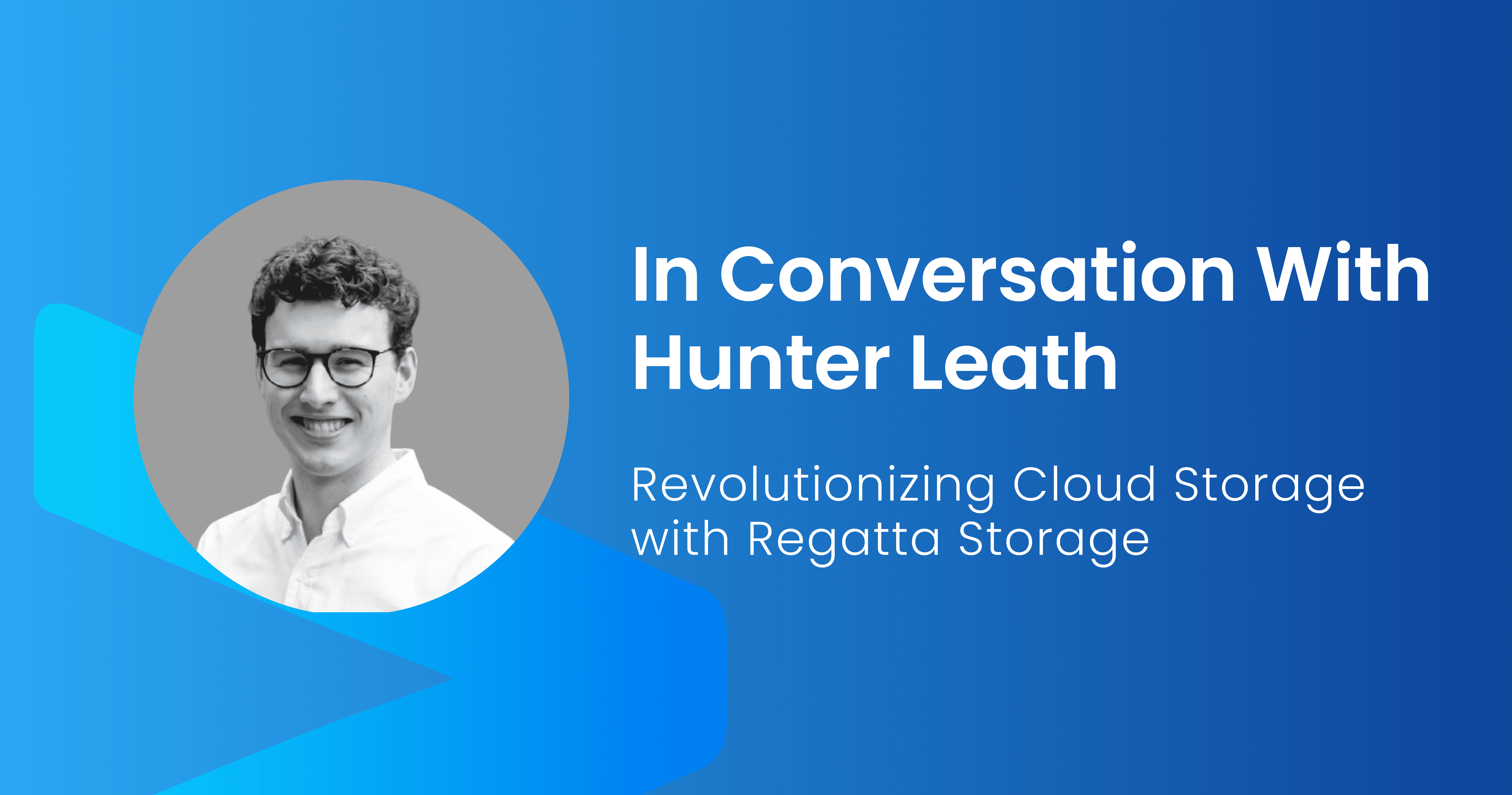Hunter Leath reveals how Regatta Storage is reshaping cloud storage with unmatched scalability and security for businesses.

In an insightful conversation with Mark Allen of Gaper.io, Hunter Leath, CEO and founder of Regatta Storage, discussed his groundbreaking cloud storage solution. Drawing from his experience at cloud computing giants like Amazon and Netflix, Hunter shared how Regatta is solving a major pain point for AI researchers and businesses relying on cloud storage.
“The problem is simple but massive,” Hunter explained. “Downloading huge datasets from S3 buckets for analysis or training models takes too much time and money. Regatta changes that.”
Hunter highlighted the inefficiencies faced by organizations using S3 buckets for storing large data sets. “AI companies are spending an inordinate amount of time downloading data just to get started,” he said. “It’s not just about time; it’s about cost. These companies are paying for egress fees and unused storage capacity.”
He explained that the process of downloading data locally before being able to use it creates bottlenecks that hinder productivity. “AI development and research require speed and agility, and the traditional model just doesn’t cut it anymore,” Hunter added.
Regatta Storage offers an innovative solution: transforming S3 buckets into unlimited local file systems. Hunter elaborated, “With Regatta, your data is mounted as a local file system. This means instant access, no downloads, and significant cost savings.”
This transformative approach eliminates the need to move large data sets entirely, allowing users to access their files on-demand as if they were stored locally. “Our technology prioritizes both speed and efficiency,” he said, emphasizing that this is particularly critical for AI companies that rely on real-time data access.
Hunter provided a real-world example to illustrate Regatta’s benefits: “Imagine training an AI model on terabytes of data. Instead of waiting hours or days to download the dataset, you can start training immediately.” This approach also reduces operational costs by cutting down on egress fees and unnecessary storage expenses.
When asked about his background and how it shaped Regatta, Hunter credited his time at Amazon and Netflix. “I saw firsthand the challenges of managing and optimizing massive data workflows. That’s where the idea for Regatta took root,” he said.
Hunter pointed out that his experience taught him the value of scalability and efficiency. “At Amazon and Netflix, we were constantly pushing the boundaries of what cloud infrastructure could do. I realized there was a gap in how data was accessed and utilized, especially for AI-focused applications.”
This experience not only inspired the creation of Regatta but also informed its core principles. “We’re not just building a product; we’re solving a problem that I’ve personally encountered,” Hunter explained.
During the interview, Hunter highlighted what makes Regatta unique in the cloud storage market. “There are other companies tackling similar issues, but they’re focused on incremental improvements. Regatta is about rethinking the entire process,” he stated.
One of the key differentiators is Regatta’s ability to integrate seamlessly with existing workflows. “We’ve designed Regatta to be as user-friendly as possible. There’s no need for complex setups or additional software. It just works,” Hunter emphasized.
Hunter also noted that Regatta’s focus on AI aligns with the needs of a rapidly growing market. “AI is the future, and we’re building the infrastructure that makes AI development faster, cheaper, and more efficient,” he said.
Looking ahead, Hunter is optimistic about the potential impact of Regatta Storage. “We’re starting with AI researchers and businesses, but the applications go far beyond that,” he shared. He envisions Regatta being used in industries such as healthcare, media, and entertainment, where large data sets are also a challenge.
Hunter revealed that the company is already working on expanding its feature set. “We’re exploring new ways to make data access even more seamless, like advanced caching and predictive loading,” he said. These features aim to further enhance Regatta’s efficiency and usability.
He also touched on the company’s plans for growth. “Our focus is on scaling the technology and bringing it to as many users as possible. We’re in talks with several enterprise clients who are excited about what Regatta can do for their workflows,” Hunter shared.
During the conversation, Hunter shared a success story that demonstrated Regatta’s impact. “One of our early adopters, a mid-size AI company, saw a 50% reduction in costs and a 70% improvement in data access speeds. That’s the kind of transformation we’re aiming for,” he said.
Hunter emphasized that customer feedback plays a crucial role in shaping Regatta’s development. “We’re constantly listening to our users and iterating on the product. Their success is our success,” he added.
Hunter’s conversation with Mark Allen provided a deep dive into the innovation driving Regatta Storage. By addressing inefficiencies in cloud storage and rethinking how data is accessed, Regatta is set to transform the way businesses handle large-scale datasets. As Hunter aptly put it, “This is just the beginning.”
Hunter left the audience with a compelling vision for the future: “We’re not just building a better cloud storage solution; we’re enabling a new era of innovation for AI and beyond. The possibilities are endless.”
Top quality ensured or we work for free
